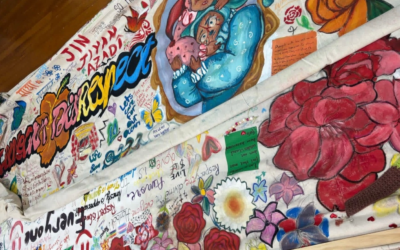For most people around the world, 2025 is a normal year. For all Australians, it’s something else: it’s a federal election year. This year will decide Australia’s direction for the education system over the next three years.
ABC News journalist, Jacob Greber, reported that Opposition Leader, Peter Dutton, criticised diversity, equity, and inclusion (DEI) initiatives, with Dutton stating: “such positions, as I say, do nothing to improve the lives of everyday Australians.”
This isn’t the first time Dutton has framed social issues through a lens of pragmatism. When speaking on matters concerning First Nations people, he similarly remarked that “what’s most important to me is the practical actions.”
Dutton also promised to cut the refugee intake percentage and ban foreign buyers to buy property in Australia as reported in 2024 by the Financial Review’s Phillip Coorey.
Now, let’s look to the statistics and see why DEI initiatives are crucial in changing people’s lives.
In 1986, four years before the Federal Government published the ‘A Fair Chance for All’ paper, the total percentage of students from Aboriginal and Torres Strait Islander backgrounds who either enrolled at TAFE or at a university was only 4.9%, 3.6% at TAFE and 1.3% at university, respectively.
Want to see the difference three decades after the paper’s publication?
Three decades after the paper’s publication the Australian Bureau of Statistics recorded 58.8% of students from Aboriginal and Torres Strait Islander backgrounds attained Certificate III at TAFE or higher qualification (including university) in 2021.
Alongside First Nations people, the paper also emphasised the vulnerability of students from non-English speaking backgrounds.
As a refugee who arrived in Australia in the winter of 2023 and who today lives in the boundaries of Fairfield LGA, I can certainly reflect on the positive impacts of DEI initiatives on people from similar backgrounds.
The Refugee Council of Australia, stated “refugee communities are under-represented in higher education”. The study found that most refugee students came from Sudan, Iran, and Iraq.
Surely, most people must recognise the misery and suffering endured by refugees from these countries.
Assuredly, most people also understand the psychological and mental distress that can occur after years spent refugee camps or inadequate temporary places (I spent nine years!) before arriving to this great country, Australia.
In Fairfield LGA, where I live, only 8% of the population holds Certificate IV, 2% hold a Certificate IV and only 13.3% hold a bachelor’s degree while nationwide it’s 12.6%, 3.5% and 26.3%, respectively.
Unfortunately, 7.4% of Fairfield’s population has no formal educational qualifications. Throughout, those who stated “No educational attainment” were just 0.8% at the 2021 census.
Now, let’s put statistics aside and get back to the stories of real everyday life Australians.
As a second-year student and the first in my family to attend university, I am proud to be enrolled in the Bachelor of Arts program at Western Sydney University, where I major in History and Political Thought, with a minor in International Relations and Asian Studies, as well as Philosophy. I am especially proud to see my institution taking affirmative action to support students from disadvantaged backgrounds, such as those from Aboriginal and Torres Strait Islander communities, lower socio-economic backgrounds, first in the family to study, refugees, and people with disabilities.
I’m proud that our university enrolled the highest number of refugee students of any academic institution, accounting for 10% of the 3,506 refugee university students in Australia.
Why are DEI initiatives important to me?
For me, enrolling at a university isn’t just about gaining a bachelor’s degree.
It’s also about integrating into Australian society.
It’s also about giving back to the country that hosted me.
It’s also about fighting the socio-economic challenges that my local community have been facing in their everyday life.
I can see the difference that affirmative action and DEI makes in the everyday lives of my classmates from disadvantaged backgrounds.
I can see the joy in the eyes of these aspirational students who by elevating themselves, elevate their communities along with them.
As DEI initiatives expanded the educational opportunities for our Aboriginal and Torres Strait Islander brothers and sisters, it can transform the lives of other disadvantaged groups.
We must remind ourselves that monumental change doesn’t happen overnight, but gradually.
The publication of the ‘A Fair Chance for All’ didn’t increase the students’ population of students from Aboriginal and Torres Strait Islanders by 100%, but it did increase it by 53.9%. That’s more than 50% in just 31 years.
Let’s all applaud the academic institutions that operate under DEI’s guiding principles, with Western Sydney University setting the tone.
Every single student from a disadvantaged background that enters a university is a win for Australia. Especially for the local community.
Coming back to the question of practicality (which is the most important thing to the politicians); what’s more practical than DEI initiatives?
Thus, everything must be done not just to keep DEI programs but to support and expand them.



